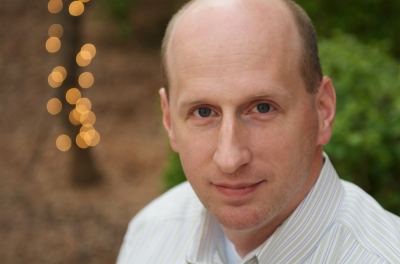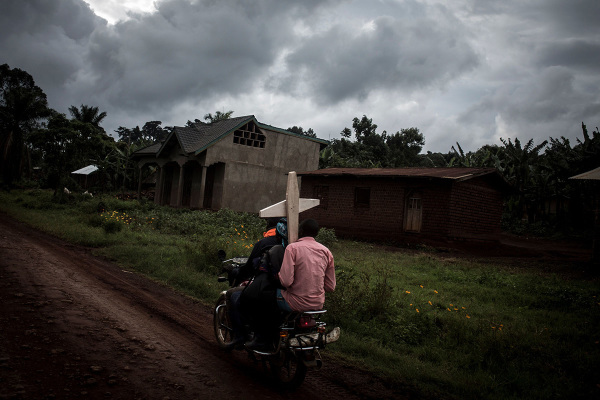Campus Sexual Assault and the High Cost of Deceptive Story-Telling

At this point, it's safe to say that the veracity of the horrifying rape story that begins Rolling Stone's report on the University of Virginia is in dispute. The reporter indisputably failed to follow best practices by not seeking comments from the accused, and now — as Rich notes in Politico — she is retreating to the position that "the real point of the story" isn't the alleged violent gang rape at all, but rather the larger culture of sexual assault.
But that's not true at all. Because the college's larger culture of sexual assault isn't about gang rape. It's about the toxic mix of alcohol, sex, and drugs.
There's a reason why reporters — especially agenda-driven reporters — begin with the most lurid stories possible. The horror story sets the stage, in this example creating the misimpression that when talking about sexual assault on campus, what we're talking about is "Jackie's story" — a horrific gang rape that until recently could have been punished by the death penalty. If the Rolling Stone story had begun differently, with the most typical kind of college sexual-assault report, the impressions would be quite different.
In fact, reviewing the very Journal of American College Health study that is most often cited as the source for the claim that one in five women are sexually assaulted in college, you see that the prevalence of "forced sexual assaults" actually decreases in college, while the prevalence of "incapacitated [by drugs or alcohol] sexual assault" increases substantially. Before going to college, 6.4 percent of the surveyed sample reported they were victims of "forced sexual assaults." During college, that number dropped to 4.7 percent. By contrast, before going to college, 7.0 percent of surveyed women reported an incapacitated sexual assault. During college that number grew to 11.4 percent, a more than 50 percent increase.
So, why center the story around a gang rape and not a falling-down-drunk hookup?
Well, for the sexual revolutionary, drugs, alcohol, and sex are supposed to mix, and everything is supposed to be fine when it does. But the real world tells a different story. In the real world, when drugs, alcohol, and sex mix, then consent gets blurred, judgments impaired, and the already fraught communication between the sexes is greatly complicated by a chemically-induced haze. That's how you get to a result where women tell surveyors they were assaulted but also tell them that the top two reasons they don't report the assault to campus police or security are (1) they don't think it was serious enough to report; or (2) they thought it was unclear that a crime happened. No one wonders if a gang rape is "serious enough" to report. But real people wonder all the time about the legal and moral seriousness of drunken hookups or other forms of drunken sexual behavior.
That's how you get unrelenting pressure to ditch due process and punish men based almost entirely on accusations alone, because when drugs and alcohol mix with sex, it becomes difficult to remember a story accurately, much less tell it coherently, and courts of law can be ruthless in exposing inconsistencies or ambiguities in allegations.
That's how you contribute to emerging mental-health issues even among the young, healthy, prosperous kids who disproportionately populate our college environment.
The disproportionate influence of alcohol on campus life makes the situation worse — in every way. It makes assault more likely. It makes prosecution more difficult. And it leaves a trail of emotional wreckage that can and does haunt women for life. I know several women who reported campus rapes, and in every case but one, either they were drunk, the assailant was drunk, or they both were drunk. In my military career as a JAG officer, the sexual-assault incidents I've seen — the very incidents that plague the military to this day — often involve alcohol.
Yet there are feminists who actually label those who admonish against binge drinking "rape denialists." This is astonishing.
Why did Rolling Stone begin its story with an atypical alleged gang rape rather than a drunken tryst? Perhaps because the drunken tryst raises the kinds of questions that the architects of campus culture don't want to answer — questions like why they've gone out of their way to enable libertine sexual lifestyles, why they've driven traditional moral voices off campus, and why they can't seem to acknowledge that sex outside of loving, committed relationships with faithful spouses can carry a lifetime of consequences.
If you are a man, and your moral code tells you that it's entirely acceptable to get sloppy drunk while trolling for a hookup, you are a danger to women and to yourself. You are asking for personal disaster, and you are priming yourself to deeply wound another person — wounding them psychically, emotionally, and physically, like a sexual version of a drunk driver.
If you're a man, and you are tempted to hook up with an obviously drunk woman — a person you know or (and this is key under the law) should know is unable to give real consent — then you're being tempted to commit a likely rape.
If you are a woman, and you drink to excess, you are instantly more vulnerable to both malicious, violent sexual predators and to the alcohol-impaired kids taking liberties they'd never take sober.
This is sheer common sense. But it's not sensational. Everyone agrees that gang rapists should go to prison. And it's hard to find any non-ideologue who thinks it's actually a good idea that colleges aren't requiring employees to report alleged rapes to the police. But on campus it's hard to find those voices who are willing to question the sexual culture, root and branch. And until they are, it's hard for me to believe that they care about harm to women as much as they care about their own ideology.





















